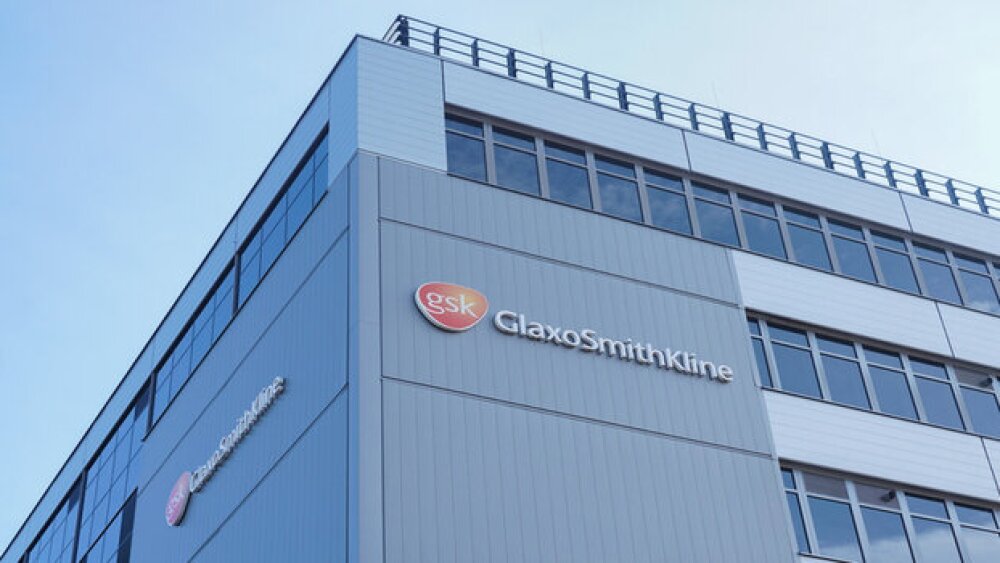A year after exiting the U.S. market, GSK is setting the stage for the antibody-drug conjugate’s possible return in relapsed/refractory multiple myeloma.
Pictured: GSK building in Dresden, Germany/iStock, 13threephotography
GSK on Monday announced that Blenrep (belantamab mafodotin) met its primary endpoint of progression-free survival in the head-to-head, Phase III DREAMM-7 study, potentially setting the antibody-drug conjugate up for a comeback in relapsed/refractory multiple myeloma.
The British multinational did not provide specific data in its press announcement, but reported that Blenrep plus bortezomib and dexamethasone (BorDex) significantly delayed disease progression or death as compared with BorDex plus daratumumab, a current standard of care for relapsed/refractory multiple myeloma (RRMM).
The Blenrep-based regimen also led to a “strong and clinically meaningful overall survival (OS) trend,” with a nominal p-value less than 0.0005, according to GSK’s news release. DREAMM-7 will continue to follow its participants for OS. As for safety, Blenrep plus BorDex did not trigger new signals of concern and had a safety profile consistent with what had previously been established.
Hesham Abdullah, senior vice president and Global Head of Oncology, R&D at GSK, said in a statement that the company is “encouraged” by these data, which highlight the potential of Blenrep to “address high unmet need in relapsed/refractory multiple myeloma.”
GSK will present the full interim analysis of DREAMM-7 at an upcoming medical congress and discuss the results with regulators.
Blenrep is an antibody-drug conjugate protein that seeks out and binds to the BCMA protein, which is crucial to the survival of plasma cells and is expressed by myeloma cells. This targeting mechanism allows Blenrep to specifically deliver its cytotoxic auristatin F payload to cancer cells.
In August 2020, Blenrep won the FDA’s accelerated approval for the treatment of adult RRMM patients who had undergone at least four prior lines of treatment, including an immunomodulatory agent, a proteasome inhibitor and an anti-CD38 antibody. At the time, GSK touted Blenrep as the “first anti-BCMA therapy approved anywhere in the world.”
To keep Blenrep on the market, however, GSK was required to run a Phase III study to verify the treatment’s clinical benefits. In November 2022, the company announced that Blenrep missed the primary endpoint of the Phase III DREAMM-3 study, which was supposed to serve as its confirmatory trial. Compared with pomalidomide plus dexamethasone, Blenrep monotherapy failed to lead to significantly better progression-free survival. A few weeks later, GSK withdrew Blenrep from the U.S. market following a request from the FDA.
Tristan Manalac is an independent science writer based in Metro Manila, Philippines. He can be reached at tristan@tristanmanalac.com or tristan.manalac@biospace.com.






